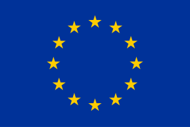DARWIN: Transition to safe & sustainable food systems through new & innovative detection methods & digital solutions for plant-based products derived from new genomic techniques, under a co-creation approach
1 January 2024 to 30 June 2027
This project title is quite a mouthful, so let’s break it down. The key phrase is ‘new genomic techniques’, abbreviated as ‘NGTs’, which you have probably heard about if you’ve been following our work and EU food and farming media lately (visit our website for more information and key resources).
A very short recap on NGTs
The term NGTs refers to biotechnologies that enable the modification of an organism’s genomic DNA in order to create genetically modified organisms (GMOs), and “have emerged or have been developed since 2001, when the existing GMO legislation was adopted” (as the European Commission put it in their 2021 study on the status of new genomic techniques). The biggest innovation has been the ‘CRISPR/Cas’ genome editing method that came onto the scene starting around 2012, generating much excitement in the biotech and agrochemical community, with genetic modification in food crops seen as one of the main areas of application.
At the same time, the development of these new genomic techniques and their possible deregulation has also raised a lot of valid fears and concerns over unintended consequences for biosafety and food safety as well as the misuse or abuse of this powerful technology for greenwashing as well as patenting of seeds and genetic material. Watch our short explainer video What are new GMOs and why we need to keep them regulated if you would like to hear the story of these.
We don’t know where these new genomic techniques are & will be used
This brings us to the ‘new detection methods’ part of the title. A major current concern is that plants and crops that have been genetically modified using NGTs, i.e. new GMOs, will be able to spread throughout the supply chain without detection. This is because current detection methods were designed for old GMOs, which leaves a clear DNA signature in the modified genome. With NGTs, the changes to the DNA can be much more subtle, and therefore more of a challenge to detect.
However, the genomic-sequencing and computational/statistical methods to detect these new GMOs are available, or are in the pipeline, and this is where DARWIN comes in: The project aims to develop, test, and validate no less than 9 new detection methods for new GMO crops obtained through NGTs.
We have the right to know what’s in our food, so we need detection methods & clear labels
As you can tell, this is a highly technical project. But adequate detection methods are an important aspect to ensure traceability and labelling throughout the whole supply chain. This is also in line with the widespread demands of European citizens who have been calling for new GMOs to be labelled for informed consumer choice.
This clearly has important implications for testing, certification, and accurate labelling of our food products, including organic and non-GMO labels. Thus, the political implications of this project are substantial, which is why we as IFOAM Organics Europe decided to be part of this ground-breaking and science-based research.
The first project work package where we are involved is titled ‘Responsible Research and Innovation (RRI) Collaborative Stakeholder Ecosystem’ (the ‘co-creation approach’ part of the title). Together with our partners, we will bring together a diverse stakeholder group in a regulatory and policy roundtable to address the core implications surrounding NGTs later this year. We will lead the analysis of the roundtable results to provide policy recommendations in 2025. The policy work will culminate in a workshop with key stakeholders in 2026.
Finally, ‘…and digital solutions’ refers to new and improved ways to ensure traceability, authenticity, and transparency of GM and non-GM food products throughout the entire supply chain, from seeds to shelves. This will be a learning opportunity for us at IFOAM Organics Europe, as it involves the use of blockchain and artificial-intelligence (AI) technologies. We are also excited that this project provides a chance for the Research & Innovation and Policy Units of IFOAM Organics Europe to team up and work more closely together within our organisation.
About the DARWIN project
The DARWIN project is a highly technological project aiming to develop, test, and validate 9 new detection methods for new GMO crops obtained through NGTs from 1 January 2024 to 30 June 2027. In full, it wants to “Transition to safe & sustainable food systems through new & innovative detection methods & digital solutions for plant-based products derived from new genomic techniques, under a co-creation approach”.
This is a crucial project for food and farming systems that want to remain GMO-free. So, as IFOAM Organics Europe we are part of the work package ‘Responsible Research and Innovation (RRI) Collaborative Stakeholder Ecosystem’. Together with our partners, we will bring together a diverse stakeholder group in a regulatory and policy roundtable. This will result in policy recommendations in 2025 (based on the roundtable’s results) and a workshop with key stakeholders in 2026.
To find out more about the DARWIN research project visit its website, read its recent press release and follow it on LinkedIn and X.


